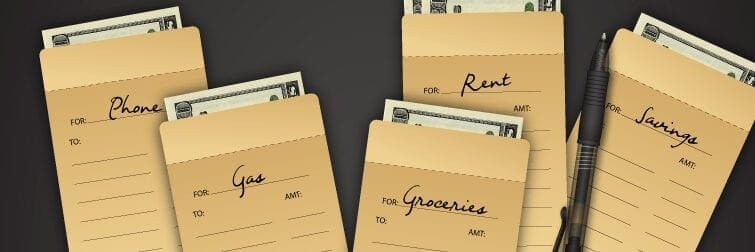
I often read articles from financial gurus, such as Gail Vaz Oxlade, Dave Ramsey, and various others, who endorse budgeting by using the envelope system. For the most part, the envelope system involves using only cash, and dividing your cash into labeled envelopes according to your budget. The envelopes are assigned to typical spending areas including: groceries, gas/travel, entertainment etc.
I really like the envelope system… in theory. In practice I’ve never found the envelope system to be practical. I find myself short in one area so I slip a bit from a different envelope, and of course change almost never winds up back in the appropriate envelope. Two days I’ve failed miserably to maintain this system.
When I am being really “good” with my finances I use a modernized version of the envelope system. I purchase gift cards from the stores that I commonly buy my necessities from. I keep one for gas, groceries, entertainment, a calling card, pharmacy etc. I also keep a bit of cash on hand for incidentals. I have found this approach to be more practical. It eliminates my biggest problem of robbing Peter to pay Paul, and I also don’t need to worry about returning the change to proper envelopes. This approach also creates a mind frame of looking at these floating expenses as fixed monthly expenses. Load each card once a month with your budgeted amount. This also forces you to stay within that amount.
It is important that you keep an amount of cash on hand as well for incidentals. It is important to define what this can be used for ahead of time. Can you use it if a friend unexpectedly comes from out of town and you want to go out – or is it reserved for more emergency situations such as your car won’t start and you need a cab? Having these boundaries set will cut down on frivolous use of this fund. Keep a small amount on you but leave most of it at home to cut down temptation.
This system can be very helpful when trying to stick to a budget. The most important aspects to making your budget work are foresight, will power and realistic expectations!
Just like with dieting, don’t let one mistake end your whole journey!

Be the first to comment